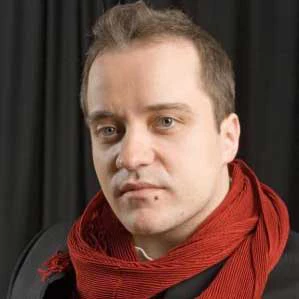While most adults in developed countries have an account at a bank or another formal financial institution, this is not the reality in many developing countries, including Senegal. A recent World Bank Group (WBG) Financial Capability Survey revealed that less than one in five Senegalese adults (17%) report owning an account at a formal institution, which includes banks, microfinance institutions, or e-money agents. While Senegal’s financial inclusion levels are similar to those in other lower-middle income economies, the country lags behind the average inclusion rate among Sub-Saharan African economies.
Why are nearly 6 million Senegalese adults financially excluded? To answer this question, it is important to understand that when it comes to being formally financially included, not everyone is on equal footing. In Senegal, financial inclusion varies substantially across sub-populations.
For instance, the odds of being financially included are 9 percentage points higher for Senegalese men than they are for Senegalese women. This difference can be partially explained by the fact that women generally participate less in household financial decisions. Only 23% of women reported being in charge of everyday household expenditures, compared to 36% of men.
Having greater access to financial services, urban populations are also more likely to be financially included than rural populations (22% versus 13%). Furthermore, adults who earn a high or medium income are 12 percentage points more likely to be financially included than those earning a low income.
According to the survey, 54% of Senegalese report that they lack enough money to own a formal account. A preference for cash was cited by 19%, while 14% do not feel the need for a formal account. Lastly, 8% of financially excluded adults find formal accounts too costly to use.
In Senegal, there are several challenges concerning people’s awareness of financial concepts and their ability to choose financial products. For instance, some 80% of the surveyed adults were familiar with money transfer services, less than 70% were aware of commercial banks, while about 25% were familiar with microfinance institutions and their products.
An international comparison of survey participants in twelve countries shows that Senegalese adults tend to monitor expenses and plan for old age, but they are among the most challenged with respect to their ability to shop around, read terms and conditions, and choose financial products that fit their needs.
These findings are of concern because they hinder beneficial uptake and usage of formal financial products and services in Senegal. In addition, transactional accounts are a first entry point into the formal financial system, and without them, people are left to transact in ways that are often risky, wasteful, and inconvenient.
Senegal has made it a priority to increase access to and responsible use of financial products and services. In 2012, the country made a commitment under the Maya Declaration to raise financial inclusion and has taken a series of steps since then. The approach has been paying off—in just a year, between 2014 and 2015, the number of formally included adults rose from 15% to 17%.
However, considering the aforementioned challenges, how can Senegal further increase the odds of being financially included, particularly for the poor, women, and rural populations?
Here are a few suggestions:
- Continue to strategize: Senegalese authorities should continue to develop a National Financial Inclusion Strategy to ensure that the public and private stakeholder commitment to advance financial inclusion in Senegal is explicit, strong, and sustained over time.
- Leverage branchless delivery channels: New business models such as mobile or agent banking can significantly reduce the costs of delivering financial services, in particular in low-density and remote areas, promoting convenient access to financial services.
- Encourage uptake and usage of basic transaction accounts at no or low costs: Existing regulation gives any person in Senegal the right to a basic bank account at no cost, but there may be little economic incentives for private sector parties to voluntarily offer these accounts to their customers.
- Promote diversified financial services: This survey revealed that low-income people in Senegalese save money and mostly rely on informal channels to do so. Formal savings products can help safeguard savings, which can help households manage cash-flow spikes, smooth consumption, and build lump sums. Developing insurance products is another approach to consider, since insurance can help mitigate shocks and manage expenses related to unexpected events, such as medical emergencies, theft or natural disasters.
- Innovate: Conveying financial messages through innovative ways, such as popular TV soap operas, films, videos or radio programs, can be effective in improving knowledge and, more importantly, in altering behavior. Periodic text messages and mobile applications could be another promising and cost-effective outreach channel. Studies in Bolivia, Peru, and the Philippines show that sending timely text messages reminding people to save can be effective in helping people save toward previously determined savings goals.


Join the Conversation